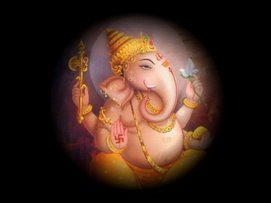One of the biggest taxation reforms in India -- the
Goods and Service Tax (GST) -- is all set to integrate State economies and boost overall growth.
GST will create a single, unified Indian market to make the economy stronger.
Finance Minister Pranab Mukherjee while presenting the Budget on July 6, 2009, said that GST would come into effect from April 2010.
The implementation of GST will lead to the abolition of other taxes such as octroi, Central Sales Tax, State-level sales tax, entry tax, stamp duty, telecom licence fees, turnover tax, tax on consumption or sale of electricity, taxes on transportation of goods and services, et cetera, thus avoiding multiple layers of taxation that currently exist in India.
What is GST?Goods and Services Tax -- GST -- is a comprehensive tax levy on manufacture, sale and consumption of goods and services at a national level.
Through a tax credit mechanism, this tax is collected on value-added goods and services at each stage of sale or purchase in the supply chain.
The system allows the set-off of GST paid on the procurement of goods and services against the GST which is payable on the supply of goods or services. However, the end consumer bears this tax as he is the last person in the supply chain.
Experts say that GST is likely to improve tax collections and boost India's economic development by breaking tax barriers between States and integrating India through a uniform tax rate.
What are the benefits of GST?Under GST, the taxation burden will be divided equitably between manufacturing and services, through a lower tax rate by increasing the tax base and minimising exemptions.
It is expected to help build a transparent and corruption-free tax administration. GST will be is levied only at the destination point, and not at various points (from manufacturing to retail outlets).
Currently, a manufacturer needs to pay tax when a finished product moves out from a factory, and it is again taxed at the retail outlet when sold.
How will it benefit the Centre and the States?It is estimated that India will gain $15 billion a year by implementing the Goods and Services Tax as it would promote exports, raise employment and boost growth. It will divide the tax burden equitably between manufacturing and services.
What are the benefits of GST for individuals and companies?In the GST system, both Central and State taxes will be collected at the point of sale. Both components (the Central and State GST) will be charged on the manufacturing cost. This will benefit individuals as prices are likely to come down. Lower prices will lead to more consumption, thereby helping companies.
What type of GST is proposed for India?
India is planning to implement a dual GST system. Under dual GST, a Central Goods and Services Tax (CGST) and a State Goods and Services Tax (SGST) will be levied on the taxable value of a transaction.
All goods and services, barring a few exceptions, will be brought into the GST base. There will be no distinction between goods and services.
Which other nations have a similar tax structure?Almost 140 countries have already implemented the GST. Most of the countries have a unified GST system. Brazil and Canada follow a dual system where GST is levied by both the Union and the State governments.
France was the first country to introduce GST system in 1954.
Will this be an extra tax?
It will not be an additional tax. CGST will include central excise duty (Cenvat), service tax, and additional duties of customs at the central level; and value-added tax, central sales tax, entertainment tax, luxury tax, octroi, lottery taxes, electricity duty, state surcharges related to supply of goods and services and purchase tax at the State level.
What will be the rate of GST?
The combined GST rate is being discussed by government. The rate is expected around 14-16 per cent. After the total GST rate is arrived at, the States and the Centre will decide on the CGST and SGST rates.
Currently, services are taxed at 10 per cent and the combined charge indirect taxes on most goods is around 20 per cent.
Will goods and services cost more after this tax comes into force?
The prices are expected to fall in the long term as dealers might pass on the benefits of the reduced tax to consumers.
Why are some States against GST; will they lose money?
The governments of Madhya Pradesh, Chhattisgarh and Tamil Nadu say that the information technology systems and the administrative infrastructure will not be ready by April 2010 to implement GST. States have sought assurances that their existing revenues will be protected.
The central government has offered to compensate States in case of a loss in revenues.
Some States fear that if the uniform tax rate is lower than their existing rates, it will hit their tax kitty. The government believes that dual GST will lead to better revenue collection for States.
However, backward and less-developed States could see a fall in tax collections. GST could see better revenue collection for some States as the consumption of goods and services will rise.
How will GST be implemented?
The empowered committee is likely to finalise the details of GST by August. But States have to sort out several issues like agreement on GST rates, constitutional amendments and holding talks with industry associations. Experts feel the drafting of legislation and the implementation of law will take time.
What are the items on which GST may not be applied?Alcohol, tobacco, petroleum products are likely to be out of the GST regime.




